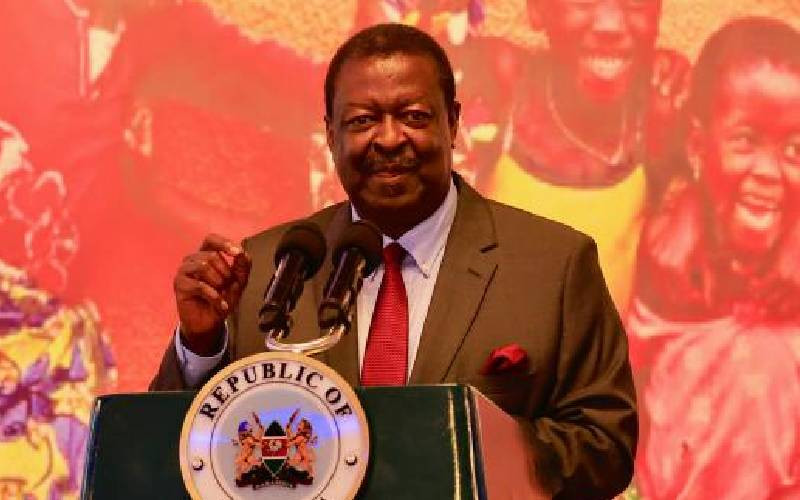By Kihumba Kimotho
In a commentary published in the opinion pages of The Standard of of January 1, 2014, headlined ‘TSC in danger of devolving corruption to counties’, the Kenya Union of Post Primary Education Teachers (Kuppet) Laikipia branch Executive Secretary, Ndung’u Wangenye, made important observations on decentralisation of teacher management functions to the counties.
To his credit, the official acknowledged that devolution has brought teacher management services such as transfers, promotional interviews, maintenance of teaching standards and monitoring of professional conduct of staff closer to teachers and other stakeholders.
Mr Wangenye further appreciated the fact that teachers now access services faster and more effectively at the TSC County and sub-county offices without incurring unnecessary travel costs to the TSC Headquarters in Nairobi. This is as it should be.
In line with the constitutional provisions on devolution, the Teachers Service Commission Act, 2012 and the relevant regulations, the Commission will continue to roll out teacher management reforms in order to ensure access to proximate and quality services for teachers and all the other stakeholders.
Mr Wangenye, however, goes ahead to make blanket allegations of corruption by TSC officials at county offices, particularly with regard to deployment to headship and deputy headship, and transfer of teachers. Unfortunately, he provides no evidence on the claims, most probably because he has none.
As an official of just one county, he cannot purport to speak for the other 46 counties. Even for his county, he failed to provide any useful information when contacted by two senior TSC officials on the very day the allegations were published. The claims by the Kuppet official can, therefore, only be described as blatantly mischievous and a figment of very fertile imagination.
For record purposes, many teachers have pleasant experiences of the way teacher management services are being offered in the counties and sub-counties.
Even more regrettable is Mr Wangenye’s effort to trivialise the process of teacher transfer and deployment to management positions, by making it appear as if it is a walk-in-walk-out affair, executed in an arbitrary and whimsical manner. The truth of the matter is that the execution of these two key functions is guided by an elaborate legal and policy framework to ensure that the available teachers are utilised in an equitable and optimal manner.
With regard to transfers, every county has a functional staffing committee chaired by the TSC County Director. These committees receive and scrutinise applications towards the end of the year to avoid disruption of classes during the term. Deployment to headship and deputy headship is founded on a competitive and consultative process put in place long before the current constitution came in force.
Potential heads and deputies of institutions are interviewed by an all inclusive panel and the names of the successful ones retained in a data bank from which they are deployed as vacancies arise, and according to the unique circumstances of the different institutions. In all this, county officials routinely and regularly consult with the TSC headquarters.
The foregoing notwithstanding, the Commission, in line with the government stated policy of zero tolerance to corruption, has reporting mechanisms to deal with corruption. Indeed it has an integrity division at the headquarters to deal with suspected corruption cases.
Clearly, it would be in the best interests of key stakeholders such as teachers’ unions to report suspected corruption cases through the established mechanisms, including security and investigative agencies such as the police and the Ethics and Anti Corruption Commission instead of engaging in attention- seeking claims.
This piece was written by Kihumba Kamotho, TSC’s Assistant Deputy Director, Corporate Communications.
Stay informed. Subscribe to our newsletter
 The Standard Group Plc is a
multi-media organization with investments in media platforms spanning newspaper
print operations, television, radio broadcasting, digital and online services. The
Standard Group is recognized as a leading multi-media house in Kenya with a key
influence in matters of national and international interest.
The Standard Group Plc is a
multi-media organization with investments in media platforms spanning newspaper
print operations, television, radio broadcasting, digital and online services. The
Standard Group is recognized as a leading multi-media house in Kenya with a key
influence in matters of national and international interest.
 The Standard Group Plc is a
multi-media organization with investments in media platforms spanning newspaper
print operations, television, radio broadcasting, digital and online services. The
Standard Group is recognized as a leading multi-media house in Kenya with a key
influence in matters of national and international interest.
The Standard Group Plc is a
multi-media organization with investments in media platforms spanning newspaper
print operations, television, radio broadcasting, digital and online services. The
Standard Group is recognized as a leading multi-media house in Kenya with a key
influence in matters of national and international interest.









